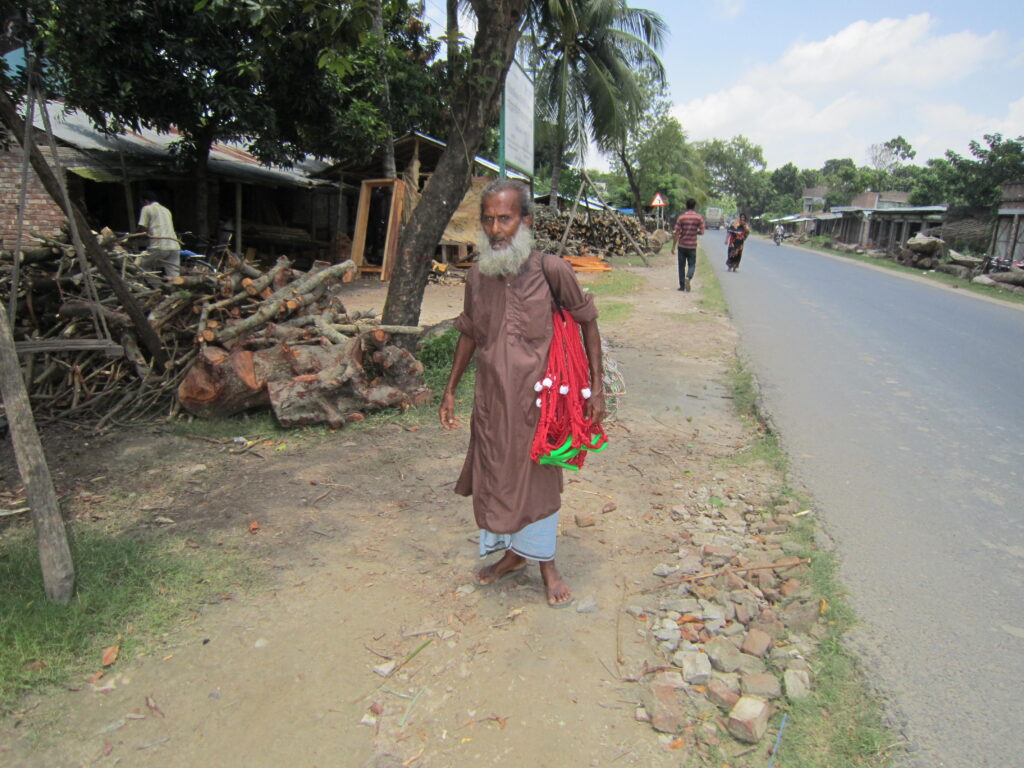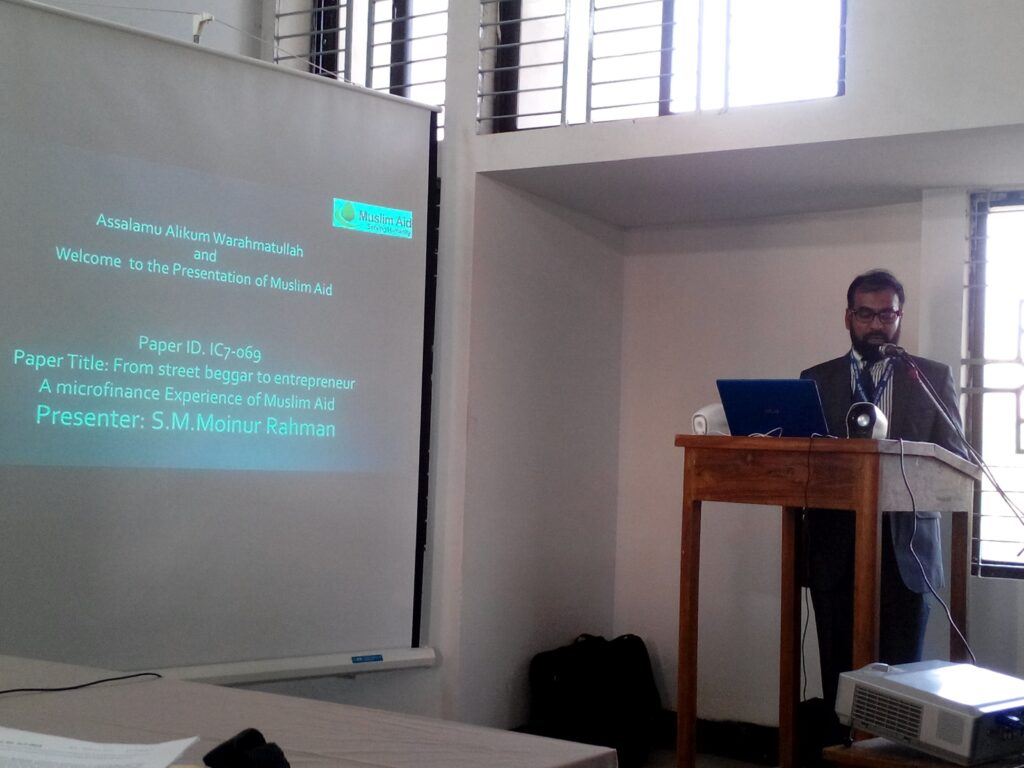

Bangladesh is a country where 26 million people are still living below the poverty line and at least 12.5 million are struggling as extreme poor facing severe socio-economic problems since from the beginning. These unfortunate poor citizens are living and fighting against the undignified conditions of the poverty. In Bangladesh, development process are being taken basically to ensure livelihood improvement of poor and pro poor people. It has found that lack of access to resources is one of the major reasons behind their poverty. The access of the poor people to formal financial institutions/Bank is not so much interested to provide loan to the poor for the dearth of collateral and other social security. On the other hand, the industrial development of the country was not established that so much to engage the poor or pro poor to ensure the income to keep them alive. Therefore, as a missing middle the poor and pro poor has to accept unfamiliar jobs to maintain their Livelihood. Finding no alternative, a huge number of extreme poor takes begging their occupation.
To improve the livelihood of the poor citizen of Bangladesh; efforts have been taken just after the liberation. The government of the People’s Republic Of Bangladesh has introduced lots of development programmes alongside the NGOs. Grameen Bank has started the microcredit programme past in 1977 as a pilot programme. Though the current structure of the microcredit system in Bangladesh is the outcome of a chain of policies and programs taken in the past since the colonial period. The first institutional credit, which is known as the Taccavi loan started operating as early as 1885, authorized by the Agricultural Loan Act of 1885. These loans were basically distress loans and were looked upon by the borrowers as relief payments not to be repaid. Thus the Micro Credit programme was officially initiated to improve and eradicate the poverty of the poor citizen and give them access to the financial market.
The success of the Micro Credit programme saw a widespread flourishing of NGOs working in this sector since its inception. In reality, the Micro Credit programme proved to have been a very successful intervention of NGOs in poverty reduction strategy. It gives marginalized people a space, not available at all in the formal process, to create resources. All Micro Finance Institutions in Bangladesh are providing financial services with high-Interest rates to poor people. This Model proves little in helping the poor to achieve self-sufficiency due to the high-interest rates.
Considering this fact, Muslim Aid Bangladesh a humanitarian organization recognized the need to provide a dignified social life to the extreme poor by discarding their unfamiliar occupation of them. Muslim Aid Bangladesh has introduced the interest-free loan to the extreme poor in 1993 ever in Bangladesh which was completely unrecoverable. Basically, the poor those who had been engaged with begging and had no dignified source of income and were dependent on others’ income were targeted and provided interest-free small loans. The poor had been given the motivation to establish their own IGA instead of depending on others. A dramatic change has been observed and at least 2,500 extreme poor has come out of their original occupation called begging.
Muslim Aid Bangladesh has been working since 1993 and still works for the different communities in the country to enrich them into a gracious social life. The targeted poor are being provided financial support like interest-free loans and regular investment following Islami Shariah Approaches under its Microfinance Programme department. Muslim Aid Bangladesh also provides trade-wise entrepreneur development training to the graduated associates and awareness building for a disciplined social life.
Let’s work together to create impact.
All rights reserved by DevMaker Consulting 2024.